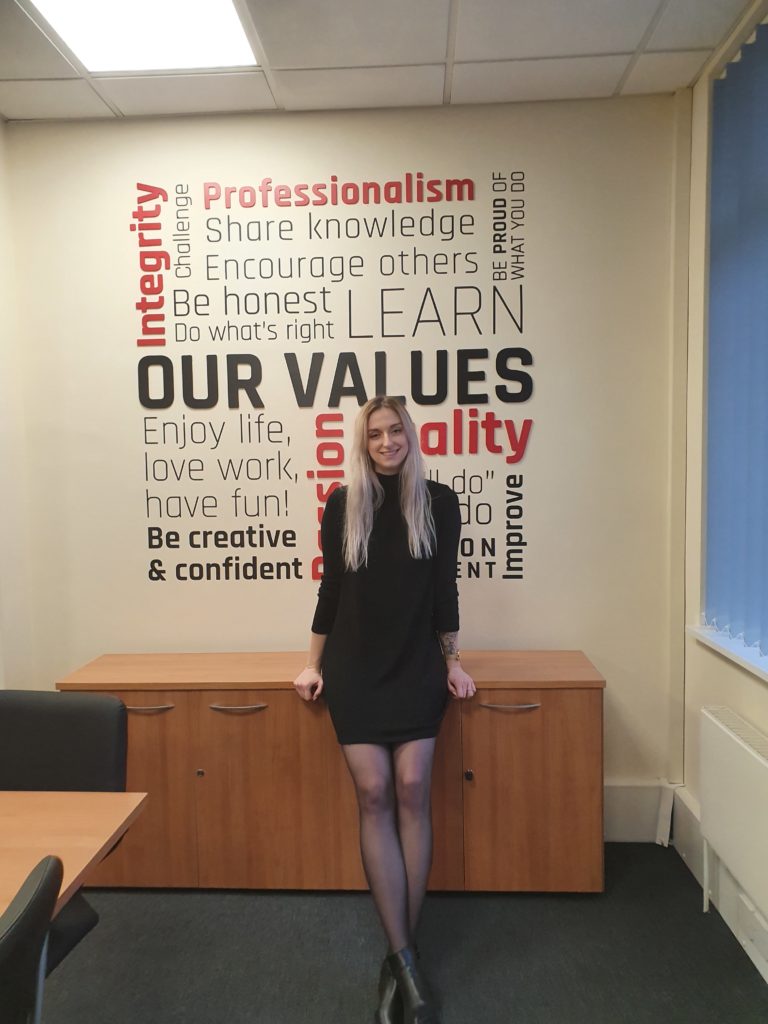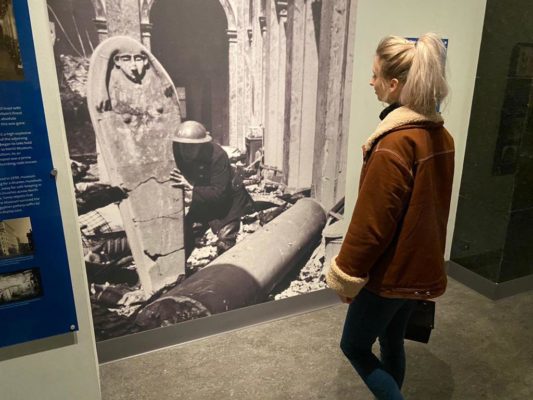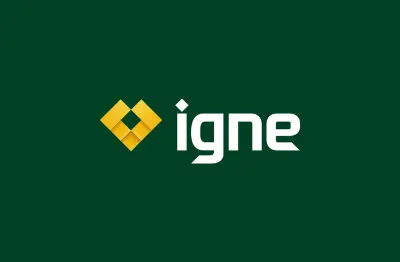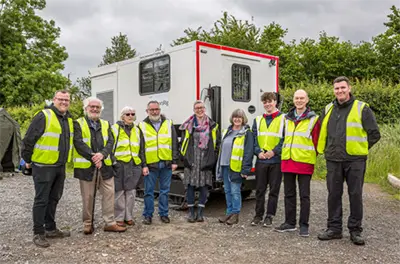Research Manager Emily Damerell
This week features Emily Damerell, Igne's Senior UXO Researcher. Emily has recently been promoted into a new role, find out more about it...
Meet Igne's Research Manager, Emily Damerell
Emily Damerell has been promoted multiple times since joining Igne seven years ago. She is a favourite colleague and an excellent example of the calibre of excellent personnel who make up the #IgneFamily.
Today (the 8th of March 2023), to mark International Women's Day, we've brought Emily's Staff Spotlight up to date, and asked her to comment on Igne’s plans for IWD23, and how she leads in a traditionally male dominated industry.

How long have you been at Igne?
I think a large part of it comes down to my natural urge to throw myself into projects and always try to exceed expectations, wherever possible. I found a passion for the industry early on and learned the day-to-day role quite quickly, and began looking for ways to improve our production processes.
When the role of Special Projects Researcher became available, I knew that I was the right person for the job – I could focus on some more complex projects. This added experience led to my next promotion to Senior Researcher, where my position became more focused on leadership.
I recall it felt like organic progress at the time, and it was my first opportunity to lead a team and gain some new skills. Then, when the role of Research Manager was offered to me, it felt like a natural progression from my previous role too. With additional training and support from Igne, I have been able to sharpen my leadership and management skills even further, now heading up a larger and still-expanding research team.
What has remained constant over the past seven years is my passion for the work and my ambition to achieve.
What is your favourite part of your research?
I am passionate about the humanitarian aspect of what Igne does. So, learning about the impact of war on people and culture, particularly the anecdotal records we access, is very interesting to me.
I find these records provide real, emotive insight into what life is like during conflict.
And, with so many conflicts still ongoing in the world, it’s intriguing to learn about them - especially when comparing lives in austere environments to our lives in the UK.
And, because variety is the spice of life, I particularly enjoy the international research element of my role too.
It’s good to be continually developing my historical knowledge and my understanding of current affairs.
What is the most interesting thing you’ve learned since working at Igne?
It’s definitely learning about how other cultures respond to conflict and how people today respond to unexploded ordnance (UXO) contamination all around the world.
Understanding the differences in attitudes towards unexploded ordnance in different countries is really interesting, especially when I unpack this further by looking at how ordnance has impacted a particular country or area.
How does your team’s work help the client and how does it fit in to the bigger Igne picture?
Our role is often the first port of call for a client’s project. For this reason, we have a responsibility to produce accurate, quality, and reliable material to help a client with their onward decision-making.
My team and I take great pride in what we do, and work with integrity to present a realistic approach to UXO threats on site.
I’m passionate about the human impact of what Igne does. My team’s role is predominantly focused in the UK, but we also support our international and marine teams all over the world.
Conflict has had a major impact on peoples’ lives to varying extents across the globe. It is a privilege to be a small part of helping people to mitigate their risk of harm. Even in the UK, UXO can cause real detriment to important infrastructure and development. It is a real triumph to know that we are helping our clients by delivering high quality service with integrity.

How has the training you've received at Igne benefited you as a leader?
Igne really does champion those who want to learn and improve their skills. The leadership training I have undertaken with The Leadership Trust has helped me to recognise both my strengths as a leader and the areas that I can improve in. It has been a personal journey as well as a professional one, and I remain conscious of my learning trajectory.
I am continually learning about the type of leader I want to be, and everything I am learning helps me to choose the right path to lead my team to success.
How do you mentor your team?
I am a big advocate of leading by example and being accepting and open to new ideas. On a day-to-day basis, one of my favourite parts of my job is training our newer recruits in the team.
Over the past year, it has been a pleasure passing on the skills I’ve learned over the last seven years to our brilliant trainee researchers. The continuous learning within my team is something I am incredibly proud of. I am very aware of how lucky I am to work with a team who constantly show innovation, flexibility, ambition, and creativity.
Their combined talent has enabled all of us to learn and expand our skills, creating one of the strongest and most effective teams I’ve ever worked with.
How do you ensure that your research team is diverse and inclusive, and what measures have you implemented to foster an environment of equality and respect?
Fairness and openness is an important factor in my team. As our role is so heavily reliant on cohesive and communicative teamwork, it is vital that a culture of respect, acceptance and enjoyment is present throughout our daily tasks. I would like to think that I am an approachable and receptive manager, and make sure that I pull my weight with the “dirty work” too. We all look out for one another.
Where next for Emily?
We are currently expanding the team, owing to growing demand for our desktop-based preliminary and detailed UXO assessments, as well as bespoke training packages etc.
There is a real balance in our role between the historical research and the technical application. Within the last few years, my team and I have focused on improving both aspects, introducing more large-scale resource collection and incorporating more GIS mapping and technology into our assessments. Our accuracy is constantly improving, our in-house archive is substantially growing…there are so many aspects of the job that I am finding more and more exciting.
My aims going forward are to lean into the technological changes in the industry and improve how we can do our job as effectively as possible.
Finally, what are Igne’s plans for International Women's Day 2023, and how do you plan to celebrate and raise awareness about the importance of gender equality and women's empowerment?
Igne has always championed skill, knowledge and capability, regardless of gender. I work alongside some incredible women who have inspired and encouraged my own growth within the company; Lucie Tiverrier (General Manager), Sharon Hemingway (Head of HR) and Rhiannon Davies (Head of Marketing and Communications) are just three of Igne’s women in leadership that I have learned a great deal from.
International Women’s Day is vital as a reminder of the inequality that still exists in the working world. It is important to celebrate the successes of women, especially within a male-dominated industry like ours
The research team work hard to create detailed, desktop studies that enable clients to make informed decisions about their unexploded ordnance mitigation needs.
Learn out about the desktop study creation process here and order your report today: keep site staff safe, and keep your project on time and budget.
Other articles of interest

Igne launch
Igne launch sees transformative merger of six leading companies to reshape pre-construction services in the infrastructure, energy and water sectors.

Cone penetration testing with Connor’s Rig
One of the reasons behind the UK land team’s decision to invest in Connor's Rig from Geomil earlier this year was to advance Igne's (formerly SafeLane) cone penetration testing (CPT) capability...


